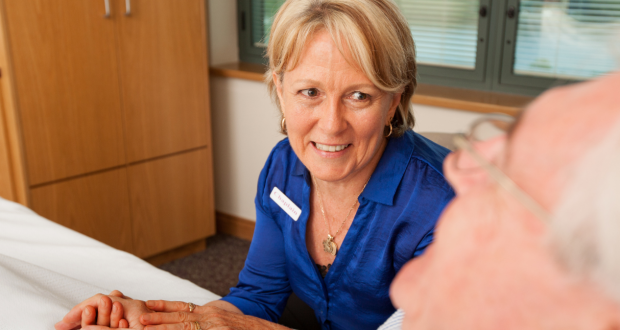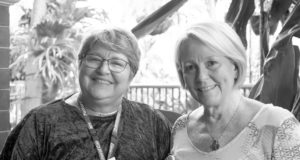Are you prepared to die? New research shows Australians are dropping the ball and not planning ahead. Ashley Thompson explores the world of life before death.
Twelve years ago a palliative care unit at Brisbane’s Wesley Hospital did not exist. Today, Ward 4A buzzes with nurses and chaplains committed to journeying with patients through the end of life phase. UnitingCare Health, Blue Care and local congregations across Queensland together represent the church’s commitment to ministering to those in palliative care. What should be a time of peace and resolution however is often tainted by unpreparedness for death.
In a survey conducted by Palliative Care Australia earlier this year, data revealed only 50 per cent of people surveyed had a will, 20 per cent a power of attorney and only 5 per cent an advanced care plan.
Everybody dies
“A lot of lawyers would argue that making a will is a civic responsibility; we should all do it because none of us can tell the time of our death,” says UnitingCare Health chaplain, Rev Heather Allison. Transitioning from working in cardiology unit to Palliative Care this July, Heather has recently immersed herself in studying the emotional, spiritual and legal end of life issues. Death is often seen by medical staff as failure or defeat and the staff of 4A are fighting hard to change the perception that palliative care is only for final days.
“Sometimes a [patient] handover will happen literally days or even hours before a person dies and it’s terrible. Families have not been prepared because some doctors will say you don’t want a person to lose hope so let’s not talk about it,” says Heather.
An unwillingness to talk about undesirable topics like death and the work it entails has created a culture of fear and prolonged suffering.
“All of the time there has been this carrot of cure, treatment, treatment, treatment and then finally it can be quite devastating when the doctor has finally said those critical words ‘I can’t do anything for you.’ You feel very abandoned then,” says Heather.
Karen Gower, Blue Care Nurse Practitioner and former clinical nurse manager of the Wesley Hospital’s Palliative Care unit Ward 4A, agrees with the benefits of introducing palliative care earlier.
“Palliative care is end of life care, yes, but a palliative approach is the overarching umbrella,” says Karen. “So we look at it as three stages: symptom control, terminal care and end of life care—some people might be in that palliative approach for up to two, three or even four years.”
According to Karen and Heather, a specialist’s frankness can free up a patient to attend to unfinished business.
The work of dying
Figures from Palliative Care Australia show that one in four Australians do not believe their loved ones have enough information to carry out their wishes and only half felt confident they could carry out their family member’s wishes.
Coined by Dr Ralph McConaghy, the Wesley Hospital’s director of palliative care, “the work of dying” refers to the legal, financial and relational tasks a person undertakes close to death. Family reunions, holidays and legacy planning top the list of pursuits by those choosing to make the most of their final days. However, for those who have left their legal and financial affairs unattended, less pleasant undertakings await.
“The statutory legal requirement in Queensland is for an advanced health directive—it is the only legal document that the ambulance will take notice of, and then there’s Common Law where you have your advanced care plan and statement of wishes,” explains Karen.
“However, if you’ve got someone who doesn’t have the capacity to complete an advanced care plan or an advanced health directive then they’d need to have done an enduring power of attorney for someone to be able to state their wishes.”
Considering how you may like to spend the final weeks of your life may not sound like fun but it is an important conversation to have in order to lift the burden of decision from your next of kin.
“What do you want for your funeral? Do you want to be cremated, do you want to be buried? Have you got a funeral plan, those sorts of things. Where are your documents, where are all your passwords of all your bank accounts?” asks Karen.
Heather Allison says once free from these responsibilities there are many other fulfilling end of life activities.
“Sometimes people will go on the best holiday of their lives—literally do the bucket list. They will say this is my last caravan trip so let’s go in this window of time I have,” she says.
“Others like to write their story, organise photos or make a family tree. Sometimes it’s just thinking ahead, such as ‘I am not going to see my daughter finish high school or get married’ or ‘I am not going to be around when she has her first child’ so literally they write letters to be opened on an 18th birthday,” says Heather.
Helping hands
Rev Dr David MacKay-Rankin, Minister with the Holland Park Uniting Churches and husband of Julie Mackay-Rankin Chaplain in the Palliative Care unit at the Wesley, has lived through a loved one’s death.
David’s first wife, also Julie, died 12 years ago of liver disease at the Wesley Hospital before palliative care had its own unit. In spite of this, Julie received excellent care and left David with peace of mind regarding her wishes. Then widowed with two teenagers, his local church, Oxley Uniting, was essential in caring for David and his children in the immediate aftermath of Julie’s death.
“We ate casseroles for six weeks,” says David, “in fact we had to ask them to stop in the end. I was a bloke with two teenage kids and although my daughter and son are quite capable, I couldn’t cook for my life.
“If you’re a person of faith who is a member of a congregation, then the support the congregation offers is critical. Sometimes it’s simply a matter of presence. There’s no limit to the ways in which people can be helpful but it’s about balancing being helpful but giving the person space,” says David.
The privilege of sharing the end of life journey is not something Heather, David or Karen will forget.
“I think that it takes a lot for people to allow someone to come in at a time when they’re very vulnerable and I find it is important to recognise that and that it is their journey, not my journey,” says Karen Gower.
“People change their focus from living for the next ten years to living out the day that they have and we can all only live one day at a time. None of us know if we’re going to wake up the next morning.”
For more information on Palliative Care at the Wesley Hospital or to donate to this invaluable service, visit wesley.com.au
The Synod Bioethics Committee’s book, Emotional, spiritual and ethical end-of-life-issues, is available at ucaqld.com.au/social-responsibility/ethics
 JourneyOnline
JourneyOnline





